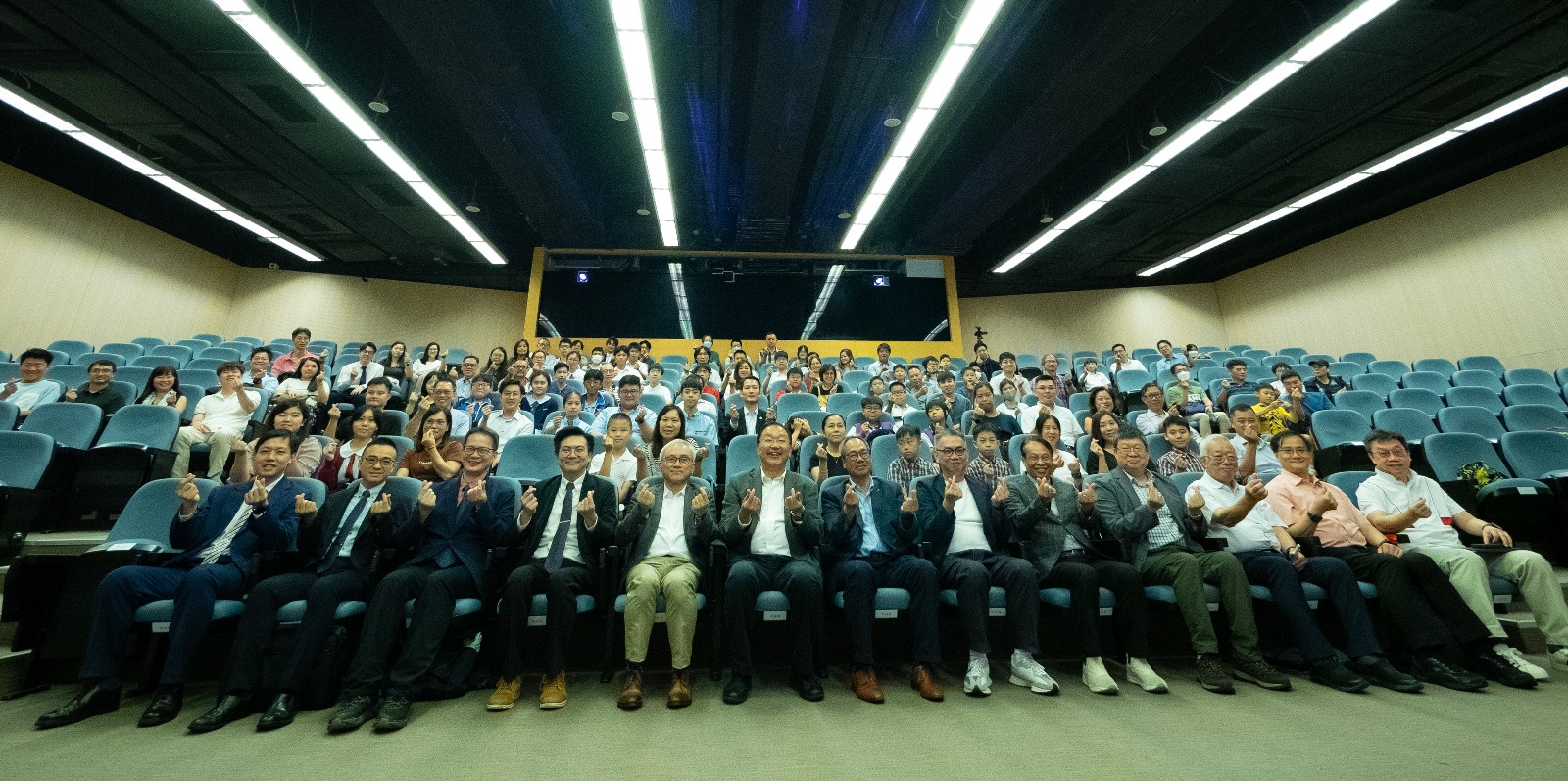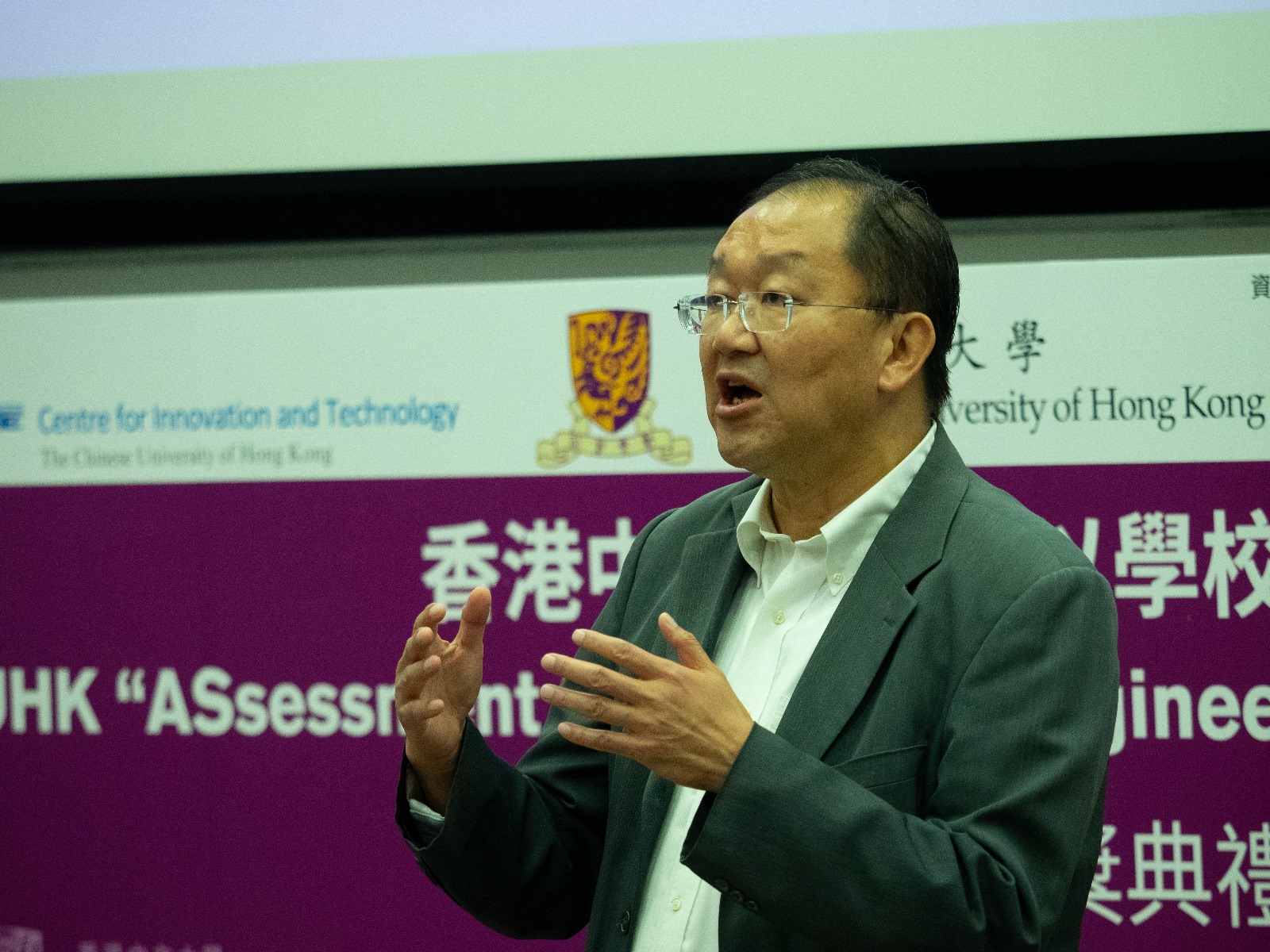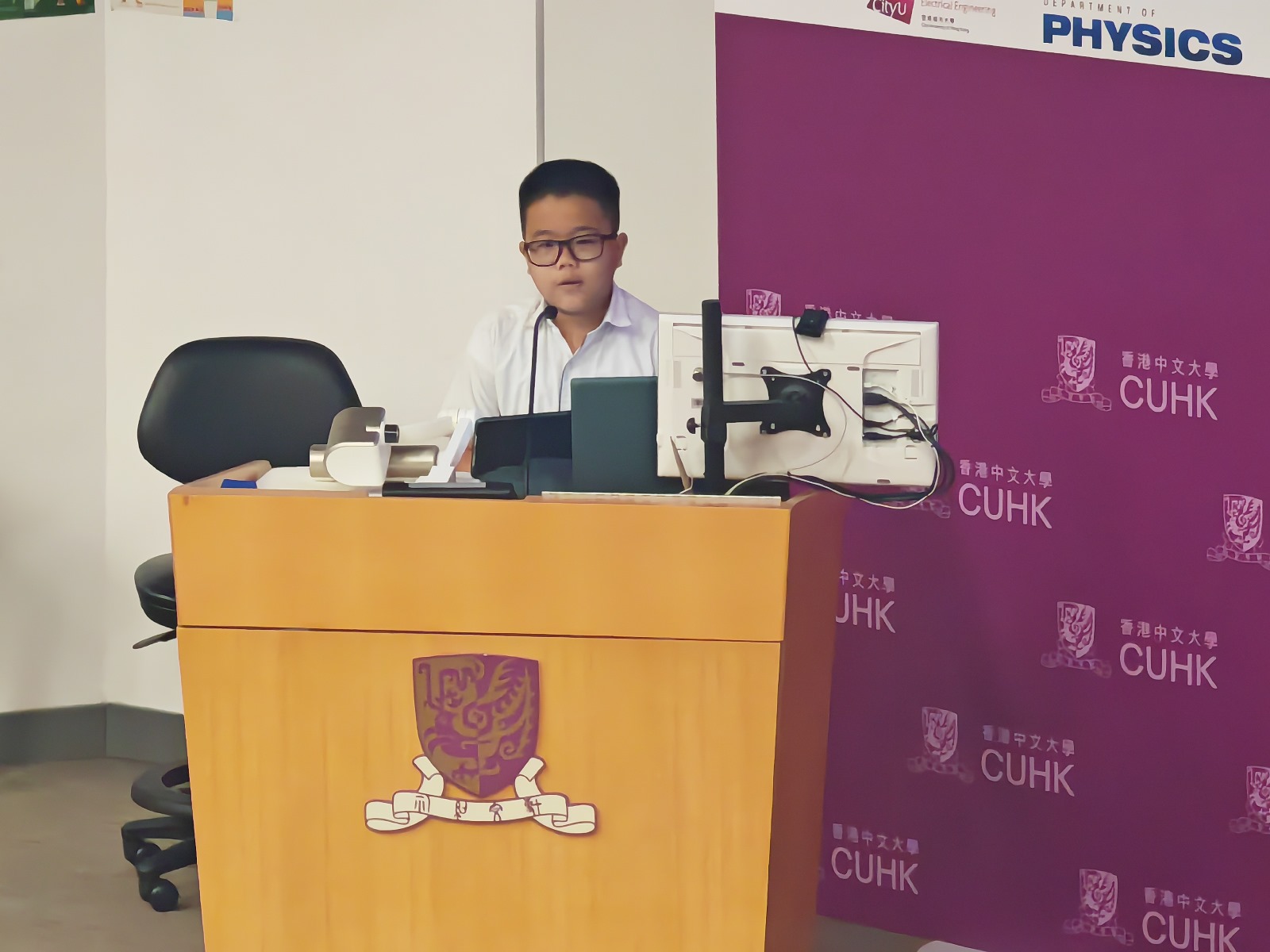News & Events
Funded by the Innovation and Technology Commission (ITC) of the HKSAR Government, the Centre for Innovation and Technology (CINTEC) in The Chinese University of Hong Kong’s (CUHK) Faculty of Engineering launched the Assessment Scheme for Engineering and Technology Education (ASSETE programme) in September 2022. By referencing international STEM education standards, it has developed an assessment framework suitable for assessing the engineering and technology levels of local primary and secondary school students. The pilot programme has provided assessments to over 1,000 students from 25 local primary and secondary schools. The effectiveness of the assessment has been validated by this pilot programme.
The ASSETE held its first award ceremony yesterday (6 July), presenting certificates to students who participated in the programme, including those whose performance was outstanding. About 120 teachers, students and their parents attended the event. The pilot programme is almost complete; its second phase will start in September, expanding the scheme to about 60 local primary and secondary schools.
Professor Wong Kam-fai, the principal investigator of the ASSETE and the Director of CINTEC, expressed his gratitude for the support of all the participating organisations, schools and teachers. He said, “The ASSETE aligns with the HKSAR Government’s policy direction in promoting local STEM education. With the assistance of experienced education experts, the ASSETE has developed an efficient assessment framework that provides a reliable assessment method, laying the foundation for large-scale assessments of the STEM levels of local primary and secondary school students in the future. The assessment results will provide important statistics and data for the Government to implement and adjust its future STEM education policies, including allocating resources strategically, facilitating local STEM education and nurturing innovation and technology talents in Hong Kong.”
Principal Ng Yat-ming, the ASSETE Advisor supervising the design of the assessment framework, reported on the progress of the programme, saying, “Around 1,000 participating students from the senior level of primary school to the junior level of secondary school have completed the three stages of programme: online self-study, face-to-face courses and online assessment. About 35% of them were rated as level 3[1] at the 1-9 level assessment scale. Among students who obtained level 3, more than 20% have completed their individual projects and will take the assessment for levels 4-9[2].” Principal Ng added that the encouraging programme results far exceed the project team’s expectations.
A student representative from YCH Law Chan Chor Si Primary School who received the Outstanding Student Award shared his experience of the ASSETE at the award ceremony. He said, “I have gained substantial knowledge about big data and the Internet of Things from ASSETE, and Artificial Intelligence is the field I am most deeply interested in. These areas represent indispensable components of technological development. I aspire to apply the knowledge I have acquired to navigate the challenges of daily life in the future.”
Project ASSETE
The ASSETE introduces international STEM education standards to Hong Kong, developing a programme suitable for educating and assessing the engineering and technology levels of local students. The ASSETE programme includes online self-study, face-to-face courses and online assessment. The online self-study platform provides multiple units at different levels, allowing students to study at their own pace and take a short test after completion. There are experienced tutors to conduct physical lectures and thematic projects in schools. The assessment references the British Institute of Coding (IoC) standard guidelines to assess the students’ knowledge of innovative technology. Each school can recommend students who are outstanding performers to visit technology companies in the Greater Bay Area.
[1] According to the British Institute of Coding (IoC), level 3 refers to “having a certain degree of knowledge of technology but he/she still needs a more in-depth understanding of different technology sectors and the applied technology within.”
[2] According to IoC, level 9 is the highest level on the 1-9 scale. It refers to “having a relatively high level of understanding of science and technology and reaching an expert level. He/she will be able to drive new developments in the scientific and technological field in the future.”
Press Release: https://www.cpr.cuhk.edu.hk/tc/press/cuhk-faculty-of-engineerings-assete-programme-marks-success-in-providing-training-and-assessment-for-over-1000-primary-and-secondary-school-students-in-first-two-years/
